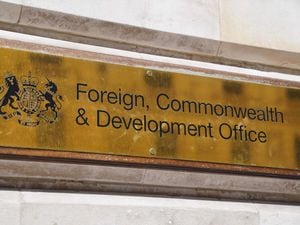Former first minister Jack McConnell brands hate crime laws ‘unworkable’
The former Scottish Labour leader said the legislation should not ‘sow division’.

A former Scottish first minister has branded new hate crime legislation as “unworkable”.
In a Sunday Mail column, Jack McConnell, who was Scottish Labour leader and first minister from 2001 to 2007, said the Hate Crime and Public Order (Scotland) Act “inflamed” trans misgendering rows.
The legislation, which came into effect on April 1, faced a fierce backlash from Harry Potter author JK Rowling and former Rangers and Scotland footballer Ally McCoist.
Scottish ministers, meanwhile, have defended the legislation, with Scottish Greens co-leader and minister Patrick Harvie warning those peddling false information would have a “heavy price on their conscience”.
However, Mr McConnell compared the legislation to the Offensive Behaviour at Football and Threatening Communications (Scotland) Act which was repealed in 2018.
Writing in the newspaper, the former first minister said “lessons were not learned” from the legislation, which was repealed after MSPs ruled it had failed to tackle sectarianism and targeted football fans.
He said officers would be dealing with many “simply spurious” complaints amid tight police budgets.
“The arguments between feminist and transgender campaigners – excluding crimes against women from the Act has inflamed the situation with many women feeling their concerns are ignored,” he wrote.
“This is exactly what good legislation should seek to avoid.
“Good political leadership should try to win the argument, build a consensus not sow division.”
Mr McConnell went on to argue the legislation showed the “opposite” of “how to use the powers of home rule to legislate well”, adding: “And that is why it might fail”.
It comes after First Minister Humza Yousaf appealed to “bad actors” to stop spreading “misinformation” about the legislation, dismissing “derogatory comments” based on the Act’s characteristics would be considered a crime.
Mr Harvie also condemned the “deplorable levels of misinformation” during an interview on BBC Scotland’s The Sunday Show.
He said: “I genuinely would appeal to those who are creating this misinformation and creating this wave of confusion and hostility, think about the real-world consequences of your actions because this is emboldening not the online keyboard warriors, not the people who get to write angry columns in newspapers, it is emboldening the worst elements of our society who genuinely do pose a threat of outright abuse and violence against marginalised and vulnerable people.”
He said those people peddling false truths had a “heavy price on their conscience”.





